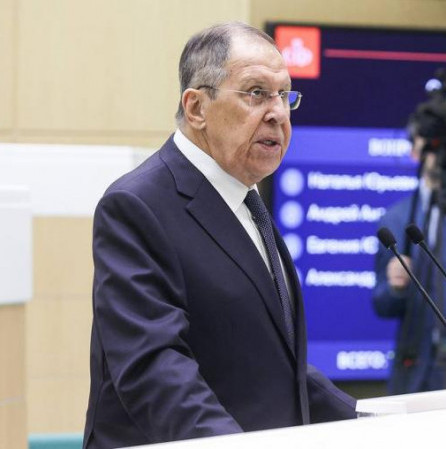
The U.S. reduces the degree of military rhetoric. Obama said Thursday that a hypothetical strike should not be considerable, so as not to disrupt the balance of power between the rebels and the army of Bashar al-Assad. Judging by the fact that the military establishments, including the headquarters of the army and intelligence agencies in Damascus are being evacuated, and the pro-government web-sites encourage people "to create human shields" we can assume that Damascus knows when, where, and how long it will be bombed.
Now there are five "Arleigh Burke" US ships and two Ohio submarines on duty in the Eastern Mediterranean, which in total can deliver more than 400 cruise missiles to the Syrian territory. It will take American aircraft carriers located in the Persian Gulf and the Arabian Sea about a week to approach the coast of Syria. In addition to the ships, the U.S. also has Incirlik air base in Turkey near the Syrian border. The use of aircraft over the territory of Syria will be difficult because, unlike Libya, Damascus has albeit outdated, but still real and multilayered air defense system.
Syrian air defense is armed with 320 S-75 Dvina and S-75M Volga air defense missile systems, 148 S-125 Neva and S-125M Pechora, 48 S-200 Angara, 48 S-300, 200, 2K12 Kub, 60 9K33 Osa, 20 9K31 Strela-1, 40 9K35 Strela, 50 Buk of various modifications and 50 Pantsir-S1 systems. Syrian government troops have a certain amount of Tunguska and Tor-M1 air defense systems as well.
One part of the listed systems is significantly out of date, and the other, according to unconfirmed reports, was upgraded with some parts of the equipment renewed in the early 2000s. The delivery of the new Russian air defense systems S-300 remains an open question. So far it is not reliably known, if Damascus has received these defense systems. However, the total number of large, medium and short-range anti-aircraft systems in service with Syrian army is enough if not for a complete success in the defense of the country but at least for measurable damage to the Western coalition aircraft.
In addition, Syrian Air Force has 219 MiG-21, 146 MiG-23 and 48 MiG-29 fighters to rebuff air attacks. According to The Guardian newspaper, Syria plans to use about 8 thousand Kamikaze pilots. Taking into account Syrian weapons, the United States will be able to provide a no-fly zone 50-60 kilometers deep from the Turkish border using the airbase in Turkey.
It can be assumed that in case of American attack on the country its effects will not be particularly noticeable for Syrian army. The fact is that, unlike the situation in Libya, this time the U.S. and its NATO allies are not prepared for a full-fledged air campaign. At least there are no signs of that. And the appropriate group alignments are not even created.
Obama's position is complicated. He must meet the interests of the right that demand to punish Assad's regime for the alleged use of chemical weapons and the left who are strongly against the attack, if it is not approved by the UN Security Council. And this, of course, will not happen due to the clear position of Russia and China.
One hundred and ten U.S. congressmen from both parties signed a letter calling on Obama to seek congressional approval before unleashing military action. At the same time the U.S. Congress is officially on a five-week vacation, which ends only 9 September 2013. Before that, September 5, Obama is supposed to come to G20 summit in St. Petersburg, where he could meet with Putin. If this happens after the bombing of Syria, significant complications in the relations between Russia and the United States may arise up to the refusal of the two leaders to meet.
Though the War Power Resolution which has the status of a federal law vests the President with the right to dispose of the U.S. military forces without a declaration of war, and therefore without the approval of Congress. However, the duration of such an operation is limited to a period of 60 days.
Interestingly, even powerful American Israel Public Affairs Committee (AIPAC) does not insist on interfering in Syrian affairs to search for evidence of the use of chemical weapons. Israel knows that if the opposition wins over Assad chaos will reign in Syria, and the influence of organizations requiring the destruction of Israel, such as al-Qaeda, will strengthen.
In case of bombing Syria the main "blow" will be delivered to the prestige of the United Nations, which will simply cease to be considered, as well as the entire system of international agreements.
Blatant ignoring Moscow's position by a number of European capitals and Washington is unlikely to promote cooperation within the UN on other areas sensitive for the West. That includes the discussion of such issues important for our partners as the supply of weapons to third countries or Iran's nuclear program. The more demonstratively Washington will not consider the Russian position on Syria, the less the White House will have an opportunity to agree on anything with the Kremlin in the future.



